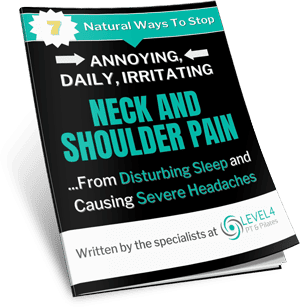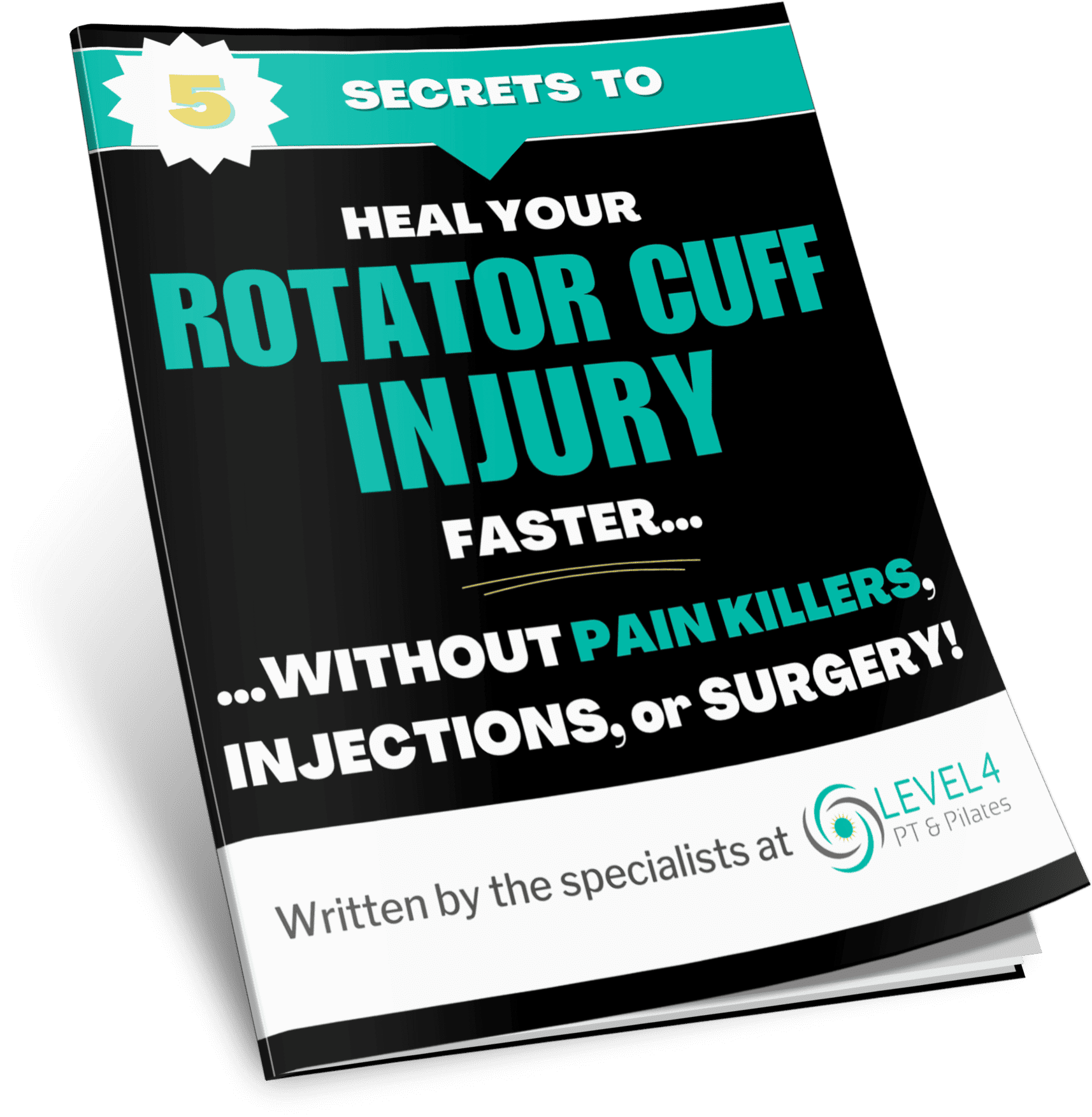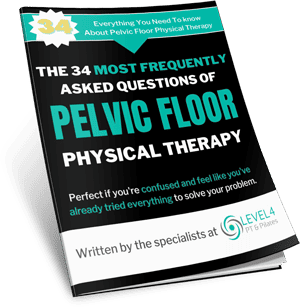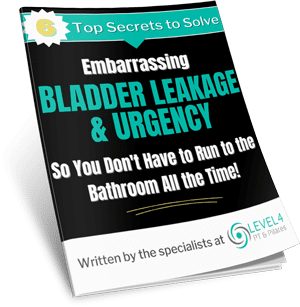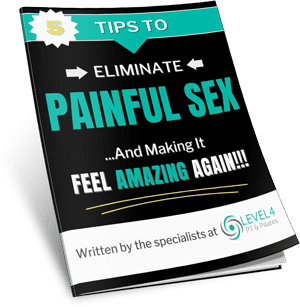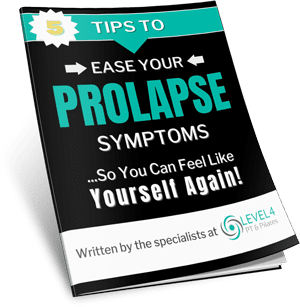
“I have been having shoulder pain on and off for several years now. It usually goes away after several weeks but this time the pain is really affecting the quality of my life. After visiting my orthopedic doctor, I was diagnosed with a rotator cuff tear which was confirmed by an MRI. I have been in pain for over 4 months, have done 4 weeks of basic PT, and have had two cortisone shots. Some say I should just intensify my PT while others say have surgery. Do you have any advice for someone like me?”
– Lindsay, 46, Encinitas
Let’s talk about shoulder pain, and the most common cause most rotator cuff injuries share in common – overuse.
Now when it comes to aches and pains there are just two ways that bring them on.
Number one, you can have an accident – With an accident you know exactly the moment it happens as there’s an incident that happens that’s usually accompanied by a pain that makes you want to yell and curl up into a ball – for example you could have a fall or have a collision.
We call this type of pain – acute pain.
Number two is related to something you’re doing that causes annoying, persistent pain that just won’t go away – this is the most common one we see here in the clinic, and we call this chronic pain.
Chronic shoulder pain from a rotator cuff injury is identified as pain that’s always there. It’s the reason you go to grab your shoulder after lifting something heavy or when you go to reach for something in the back of the cupboard, and isn’t always put down to one particular movement or activity. Those who have this type of shoulder pain often feel doomed, as if they were just plagued with bad shoulders.
Other common complaints we hear in the clinic from our clients who have been diagnosed with a rotator cuff injury are with activities such as:
- Repetitive Reaching
- Lifting
- Carrying
- Pushing off with your arms
- Pulling
- Lifting items overhead
- Sleeping
- Exercising /Sporting Activities (lifting weights, overhead activities, etc.)
But here’s the thing, there’s simple ways to ease it, and to help fix it…regardless if your MRI scan shows a rotator cuff injury or tear.
Let me tell you a quick story about a client we saw a few weeks ago…
Lindsay, 56 from Encinitas, came to us after struggling with chronic shoulder pain due to a rotator cuff injury for over four months…
Lindsay plays beach volleyball at a high level, so having to put up with shoulder pain every day was beginning to affect her performance and get in the way of her weekly training sessions – not good when she had pre-season training coming up!
After a few weeks of hands-on physical therapy with therapeutic massage and personalized exercises, Lindsay returned to volleyball gaining a position in the first team for her club’s upcoming games!
But even if you’re not involved in a sport like Lindsay, this doesn’t mean chronic shoulder pain like this isn’t happening to you (or won’t either) …
This same type of shoulder pain can be caused by all sorts of things – ironing, painting, a job where you have to lift heavy objects, and even from sitting hunched over at a desk all day.
So, what can you do about it if it’s happening to you (or if it suddenly comes on)?
Well firstly I want you to know that ‘overuse’ doesn’t specifically mean doing an activity ‘too much’ (so I’m sorry to say it, but something like ironing isn’t the culprit of your bad shoulder!). Overuse actually means doing an activity the ‘wrong way’ too much.
Let me explain…
In Lindsay’s case she was performing a shoulder exercise in the gym to enhance her volleyball skills in the wrong position – which we discovered was causing her shoulder pain in the first place!
You see, she was getting what is called “shoulder impingement” or “rotator cuff impingement syndrome”.
But gym and exercises aside, it could just be that you could have weak muscles in your arms, back and shoulders, poor posture when sitting and standing, or you could have even spent most of your life sleeping in an awkward, twisted position!
Whatever it is, all of these things can be the culprit of nagging shoulder pain.
So let’s look at some ways you can ease irritating, daily shoulder pain that disturbs your sleep and gets in the way of almost everything you do…
Use Ice And Heat
Whenever you’re feeling achy or painful, such as at the end of a very busy day, ice is by far the best way to ease the pain. Apply an ice pack for ten minutes or so, little but very often every hour.
And when to use heat? When you wake up in the morning the muscles are likely to be a little stiff and cold from not moving all night, applying a hot compress will help you move your shoulder with more ease. Again, ten minutes should do it.
How Do You Sleep?
How many pillows do you sleep with? Two, or one?
If you’re used to sleeping with two pillows this one may feel a little strange at first but in the long run, it’ll do your shoulders a world of good.
Sleeping with one pillow lowers the amount of stretching and tension that happens in your neck and shoulders at night.
Drop down to just one soft pillow and you’ll notice a difference.
– BLOG: In Search of the Perfect Pillow >
Hands On Physical Therapy
And lastly, if you’ve been putting up with the pain for several weeks now, (even months), getting some hands-on treatment is going to help ease the pain fast. In fact, there isn’t a faster way to ease shoulder pain than by going to see a Physical Therapist…
Physical Therapy will be able to soothe and relax tight aching muscles, as well as give you personalized exercises that will help strengthen your muscles and make sure your posture is perfectly aligned.
Combine all these tips along with a trip to see a Physical Therapy Shoulder Specialist, and you will feel a dramatic drop in the pain you’re currently suffering from.
If you’d like more quick tips like this to help ease shoulder pain from a rotator cuff injury, click here to download our free tips guide instantly >>
I hope this advice help you in your search to find the “perfect” solution for YOU!
Dedicated to your health,
Dr. Oscar
- Can Physical Therapy Help My Muscles After Having Covid? - January 26, 2022
- The Real Story Behind What’s Causing Your Sciatica - August 30, 2021
- Should I Have Surgery to Repair a Tear in My Rotator Cuff? - February 9, 2021






